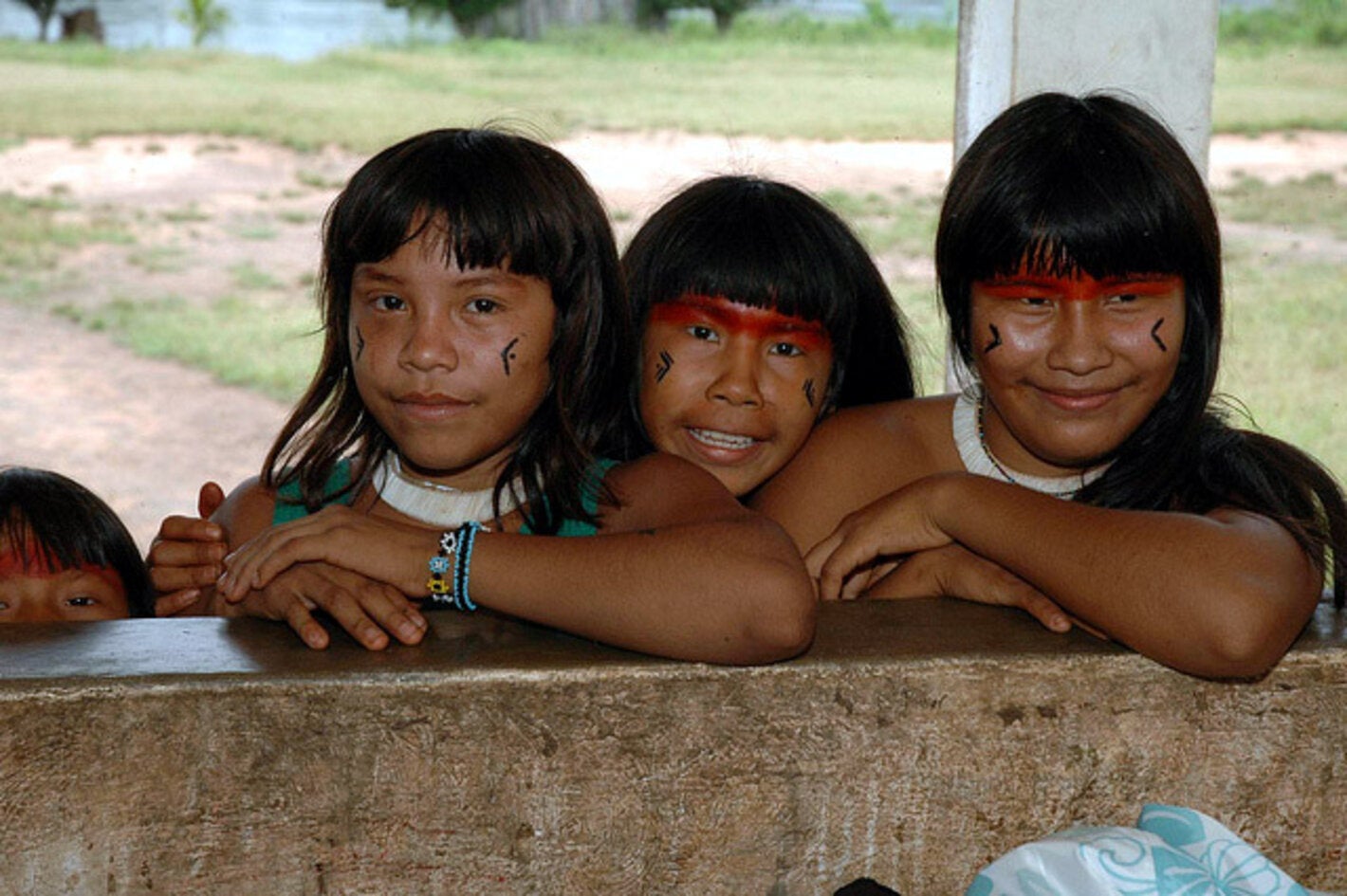
Washington, DC, August 7, 2015 (PAHO/WHO) - Ensuring access to health services and the wellbeing of indigenous populations are tasks that still represent a challenge for the countries of the Americas, as these populations are most affected by inequities in access to health services. The Pan American Health Organization / World Health Organization (PAHO/WHO) calls for joint efforts to overcome barriers to indigenous peoples' access to quality health services and to respect their beliefs and cultural practices.
This call is being made in recognition of the International Day of the World's Indigenous Peoples, commemorated each August 9, which highlights this year the need to ensure indigenous peoples' access to health services as well as their welfare as part of the post-2015 development agenda.
In the Americas, the lack of access to health services among indigenous populations is a widespread problem that is often linked with geographic barriers, discrimination, stigma, and importantly, a lack of social and cultural understanding about the particular needs of these groups and of traditional medicine included as part of their care.
When indigenous communities do have access to health services, the services tend to be of lower quality than those available to other groups and are not always culturally acceptable to the indigenous communities. It is also a challenge to have health workers available who speak indigenous languages, which also compromises the quality of services provided to them. Statistical data on indigenous health are very limited, which hinders the ability to carry out in-depth analysis of health inequalities and limits the efforts to design appropriate responses.
Last year, the countries of the Americas approved a strategy on universal health and access to health, which establishes a roadmap to improve access to health services that are comprehensive, high quality, and don't cause the people who use them to become poor. PAHO/WHO is committed to maintaining indigenous populations' access to universal health coverage at the center of the discussion on how to implement this strategy, assured Carissa F. Etienne, Director of PAHO, during the World Conference on Indigenous Populations held in September of 2014.
Indigenous populations tend to face health conditions that are more severe, have greater risk of having disabilities, have lower quality of life, and in many cases die prematurely compared to other population groups. Indigenous women in particular tend to face more serious health problems, as they are disproportionately affected by adverse events. Child mortality also tends to be higher in indigenous populations than other groups. Many of the causes of death are preventable, including malnutrition, diarrhea, parasitic infections and tuberculosis.
PAHO/WHO promotes actions to strengthen cross-cultural health skills in the Americas through the promotion of networks of indigenous populations, increasing access to comprehensive health services that are culturally sensitive, and the recognition of traditional medicine.
#
PAHO, founded in 1902, is the oldest international public health organization in the world. It works with its member countries to improve the health and the quality of life of the people of the Americas. It also serves as the Regional Office for the Americas of WHO and is part of the Inter-American system.



